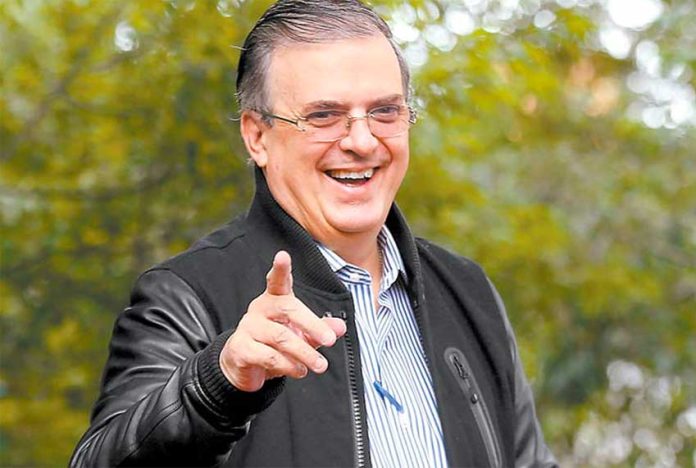Mexico will seek to increase its presence in Central America during the administration of the new federal government, says the nominee for foreign affairs secretary.
“For economic reasons, Mexico has been too concentrated on a single relationship, which is with the United States and to a lesser extent with Canada . . . Just as we have to look to the north, we [also] have the south and [we must] increase the presence of the country in Central America,” Marcelo Ebrard told a press conference yesterday.
The goal will be on the agenda tomorrow when the president-elect meets with Guatemalan President Jimmy Morales in Tuxtla Gutiérrez, Chiapas.
It will be the first time that Andrés Manuel López Obrador has met with a foreign head of state since his landslide victory on July 1.
“We’re going to raise the ideas we have, which are projects in two senses: one, for immediate employment and the other for development, which has a longer maturation period . . .” Ebrard said.
The future foreign affairs chief also said he would seek to persuade the United States to participate in the projects and to increase its allocation of funds to the region, although he stressed that “other possible sources of support,” such as the European Union, will also be sought.
“[There has been] an increase in problems, both in insecurity as well as migratory and economic flows and the United States’ investment [in Central America] has been quite limited, a much greater effort could be made,” Ebrard said.
In a letter sent to United States President Donald Trump last month, López Obrador proposed that Mexico, the U.S. and each Central American nation contribute resources according to the size of its economy and that 75% of the collective funds be allocated to finance projects that create jobs and combat poverty, while the other 25% would go to border control and security.
“. . . Every government from Panama to the Rio Grande would work to make the migration of its citizens economically unnecessary and take care of their borders to avoid the illegal transit of merchandise, weapons and drugs . . .” the president-elect wrote.
Ebrard said yesterday that López Obrador and the ambassadors of Central and South America will hold a meeting in Mexico City Wednesday, at which regional cooperation will also be the core focus.
“We’re going to try to have these kinds of dialogues periodically. It’s not just a political greeting, we want to come up with a working agenda. We deliberately convened everyone together because we’re firm believers that, despite the differences there are, we should all work together,” he said.
Turning to the security arrangement in place with the United States to combat drug trafficking, Ebrard flagged that the new government will seek to depart from the status quo.
“Yes, we aspire to a real change in the strategy that has been followed because if we keep doing the same thing, we’re going to have the same results, both us and them,” he said.
“Changes have to be made. I don’t believe that the intention to cooperate will be modified, what’s going to change is the content of what is being carried out because in the end it’s the same strategy as 20 years ago.”
Mexican and U.S. law enforcement authorities announced new security strategies earlier this month including the creation of a joint investigative team that will target the leaders and finances of Mexican cartels that ship drugs into the United States.
Following the announcement, López Obrador’s nominee for secretary of public security, Alfonso Durazo, said the new government will focus more on the latter rather than the former, charging that what gives cartels the capacity to operate are their financial resources rather than their leaders.
But Ebrard stressed that the incoming government has not yet discussed binational security arrangements with U.S. officials as it is still refining the domestic security strategy it will implement.
“We’re not going to stop cooperating with the United States, but what matters is what strategy we’re going to follow, what is the route.” he said.
Source: Milenio (sp)
